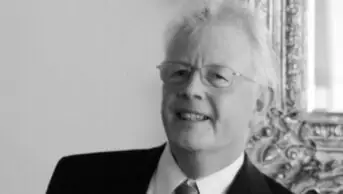It was with great sadness that I learned of the death of my dear friend Robert Shaw of Upper Tasburgh, Norfolk.
I first met Robert in 1971 when he came for interview at the Norfolk and Norwich Hospital for a preregistration post. He had graduated as a mature student from the Bradford University School of Pharmacy following a period spent at the Huntingdon Research Laboratories, carrying out initial drug testing studies for the pharmaceutical industry.
His preregistration training led to an appointment as a rotational pharmacist in Norwich on a training programme. He quickly established a reputation as a promising young pharmacist with a scientific flair. He was then appointed as a senior pharmacist in charge of radio pharmaceutical dispensing and quality assurance, working in close co-operation with the medical physics department and clinicians.
Between 1972 and 1975, he was chair of the printing and publicity sub-committee for the 1975 British Pharmaceutical Conference in Norwich, a role that he carried out with his customary efficiency and creativity.
He moved to a senior pharmacist’s post in charge of quality assurance testing and development. This became his forte, with the quality and scope of his work gaining him an appointment in 1975 as a regional principal pharmacist in charge of not only quality assurance at the Norfolk and Norwich Hospital, but also a wider regional role as a quality assurance adviser for East Anglia.
Robert quickly established a first class quality assurance service throughout the East Anglian region and achieved national status through his involvement with the Department of Health and Social Security. Robert pioneered the development of quality assurance for the clinical services provided by pharmacy departments and introduced a ‘Quality Matters’ news sheet.
During this period, he took responsibility for the regional preregistration training programme. He was a firm favourite with students, seeing them through preregistration examinations and adopting a holistic approach to their care, training, and development. The annual presentation of student research projects became a star attraction in the region.
This involvement with students led to an academic appointment as course director for the development of the new pharmacy degree course at the University of East Anglia, which opened in 2003, working in close co-operation with academic colleagues and hospital and community pharmacists in the region. This crowned a long and distinguished career.
He was awarded a Master’s of Philosophy by the University of Bradford in 1984 for research into the interaction of chloroform with insoluble solids and its consequence for preservation.
He was appointed as a Fellow of the Royal Pharmaceutical Society in 2003 for distinction in the development of the new School of Pharmacy at the University of East Anglia, for his commitment to healthcare in quality assurance and for his close links with hospital and community pharmacists.
Everything that Robert did was carried out to a very high standard with meticulous planning and execution. He was a greatly valued, much admired and much loved friend and colleague to me, and to many others.
He bore a long illness with courage, and determination and often confounded his doctors.
Robert was essentially a family man, enjoying time spent with his beloved and devoted wife Carys and with his daughter Katherine, his two sons, Richard and William, and their families to whom I extend my thoughts and prayers at this difficult time. One feature of his family time was their legendary caravan holidays in Europe in the summer.
It was a pleasure to experience his generous hospitality and to drink a glass of his favourite Riesling wine from Alsace with him from time to time, for which I shall always be thankful.
We shall miss this gentle, and unassuming man. Most of all, we shall miss his infectious chuckle.
David Carrington FRPharmS
You may also be interested in
Peter Frederick Cooper (1944–2025)
David Bowen (1936–2025)
